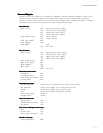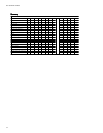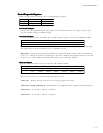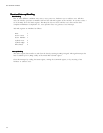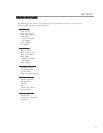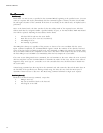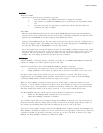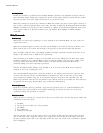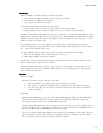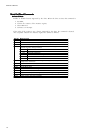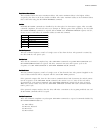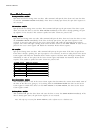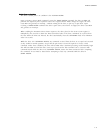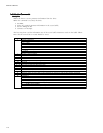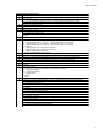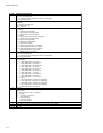INTERFACE COMMANDS
7 – 5
Write MultipleWrite Multiple
Write MultipleWrite Multiple
Write Multiple
Performs similarly to the Write Sector(s) command, except that:
1. The controller sets BSY immediately upon receipt of the command,
2. Data transfers are multiple sector blocks and
3. The Long bit and Retry bit is not valid.
Command execution differs from Write Sector(s) because:
1. Several sectors transfer to the host as a block without intervening interrupts.
2. DRQ qualification of the transfer is required at the start of the block, not on each sector.
The block count consists of the number of sectors to be transferred as a block and is programmed by the Set
Multiple Mode command, which must be executed prior to the Write Multiple command. When the Write
Multiple command is issued, the Sector Count register contains the number of sectors requested — not the
number of blocks or the block count.
If the number of sectors is not evenly divisible by the block count, as many full blocks as possible are
transferred, followed by a final, partial block transfer. This final, partial block transfer is for N sectors, where
N = (sector count) modulo (block count)
The Write Multiple operation will be rejected with an Aborted Command error if attempted:
1. Before the Set Multiple Mode command has been executed, or
2. When Write Multiple commands are disabled.
All disk errors encountered during Write Multiple commands report after the attempted disk write of the
block or partial block in which the error occurred.
The write operation ends with the sector in error, even if it was in the middle of a block. When an error
occurs, subsequent blocks are not transferred. When DRQ is set at the beginning of each full and partial
block, interrupts are generated.
Write DMAWrite DMA
Write DMAWrite DMA
Write DMA
Multi-word DMA
Identical to the Write Sector(s) command, except that:
1. The host initializes a slave-DMA channel prior to issuing the command,
2. Data transfers are qualified by DMARQ and are performed by the slave-DMA channel and
3. The drive issues only one interrupt per command to indicate that data transfer has terminated
at status is available.
Ultra DMA
With the Ultra DMA Write protocol, the control signal (HSTROBE) that latches data from DD(15:0) is
generated by the devices which drives the data onto the bus. Ownership of DD(15:0) and this data
strobe signal are given to the host for an Ultra DMA data out burst.
During an Ultra DMA Write burst, the host always moves data onto the bus, and, after a sufficient time to
allow for propagation delay, cable settling, and setup time, the sender shall generate a HSTROBE edge to
latch the data. Both edges of HSTROBE are used for data transfers.
Any error encountered during Write DMA execution results in the termination of data transfer. The drive
issues an interrupt to indicate that data transfer has terminated and status is available in the error register.
The error posting is the same as that of the Write Sector(s) command.



